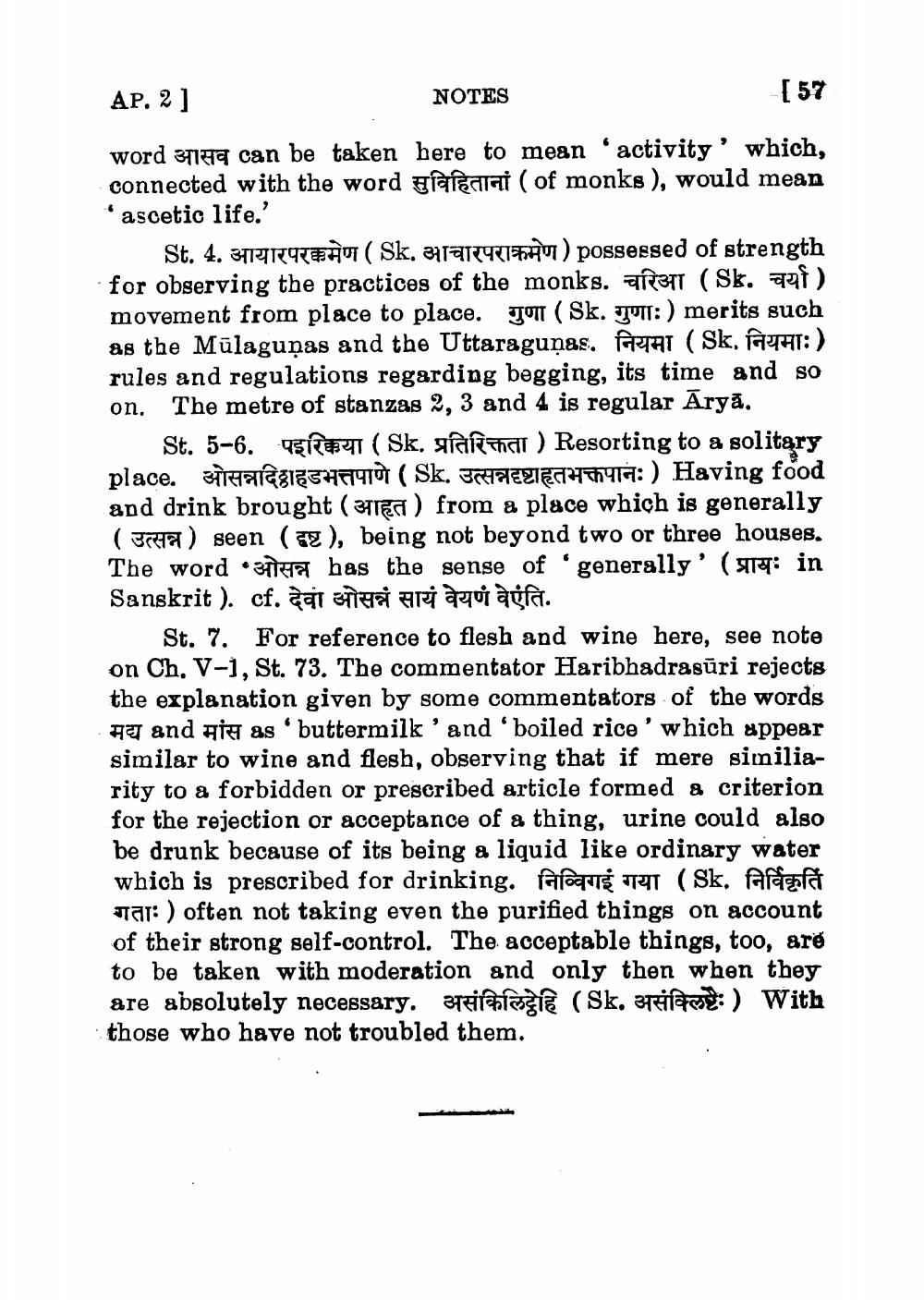________________
AP. 2]
[ 57
word can be taken here to mean activity' which, connected with the word garai (of monks), would mean 'ascetic life.'
NOTES
6
St. 4. आयारपरक्कमेण ( Sk. आचारपराक्रमेण ) possessed of strength for observing the practices of the monks. चरिआ ( Sk. चर्या ) movement from place to place. (Sk. :) merits such as the Mūlagunas and the Uttaragunas. नियमा ( Sk. नियमाः ) rules and regulations regarding begging, its time and so on. The metre of stanzas 2, 3 and 4 is regular Arya.
•
St. 5-6. पइरिक्कया ( Sk. प्रतिरिक्तता ) Resorting to a solitary place. ओसन्नदिठ्ठा हडभत्तपाणे ( Sk. उत्सन्नदृष्टाहृतभक्तपानः ) Having food and drink brought () from a place which is generally (3) seen (), being not beyond two or three houses. The word has the sense of 'generally' ( in Sanskrit ). cf. देवा ओसन्नं सायं वेयणं वेति.
St. 7. For reference to flesh and wine here, see note on Ch. V-1, St. 73. The commentator Haribhadrasuri rejects the explanation given by some commentators of the words and i as 'buttermilk' and 'boiled rice' which appear similar to wine and flesh, observing that if mere similiarity to a forbidden or prescribed article formed a criterion for the rejection or acceptance of a thing, urine could also be drunk because of its being a liquid like ordinary water which is prescribed for drinking. निव्विगईं गया ( Sk, निर्विकृर्ति
:) often not taking even the purified things on account of their strong self-control. The acceptable things, too, are to be taken with moderation and only then when they are absolutely necessary. असंकिलिट्ठेहि ( Sk. असंक्लिष्टैः) With those who have not troubled them.




